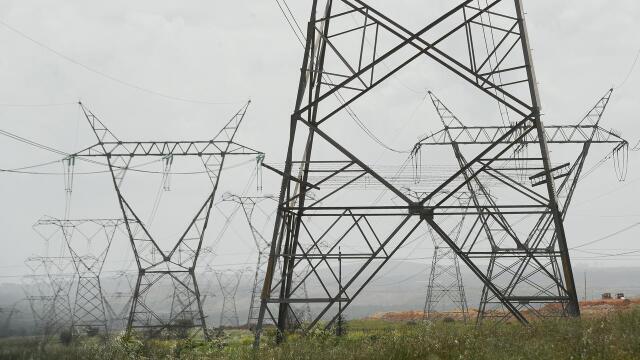Eskom chief executive Andre de Ruyter has warned that the utility’s power generation crisis will persist for longer if the government fails to allow it to procure more electricity from Independent Power Producers (IPPs).
ESKOM chief executive Andre de Ruyter has warned that the utility’s power generation crisis would persist for longer if the government failed to allow it to procure more electricity from independent power producers (IPPs).
Speaking at PSG’s “Think Big” Series on Wednesday, De Ruyter said there was a need to ramp up the procurement of capacity above the 11,800 megawatts (MW) approved in a recently gazetted Ministerial Determination.
De Ruyter said about half of the 11,800MW was not going to be available for the next 10 years as only 6,000MW in the Ministerial Determination was made of renewable energy.
He said the generation capacity of renewable energy needed to be multiplied by the availability factor as the wind did not always blow and the sun did not always shine.
“Before you really started, of the 12 gigawatts that we’ve got, about half is not going to be available within the next decade,” De Ruyter said.
“And this comes at the same time as we are decommissioning between 8 and 12 gigawatts of coal-fired electricity, because our plants have simply become too old to operate.
“And therefore, we are advocating, we are saying this is a fantastic first move. But give us more capacity, because the country needs it.”
The Department of Mineral Resources was not immediately available for comment on the procurement of additional capacity.
The 2019 Integrated Resource Plan allocated 1,500MW of new coal generation, with 750MW earmarked for introduction into the grid in 2023 and another 750MW for 2027.
De Ruyter said it would be impossible to build capacity for the 1,500MW of new coal included in the Ministerial Determination within these set time-frames.
He said that though this was definitely a move in the right direction and should be welcomed, building a new coal-fired power station was going to take time due to funding and regulations.
“Even if you could go and borrow the money to build a new coal plant, and that’s going to take you the better part of a decade, you then have to comply with environmental emissions,” he said.
“This is going to be a very tough ask to build 1,500MW of additional new coal (plant).”
De Ruyter, however, said Eskom would love to participate in the creation of new capacity.
He said fixing and maintenance of neglected Eskom infrastructure took an inordinate amount of time and resources.
De Ruyter then outlined possible environmental ways Eskom could do this by going into partnership with private players, including putting up its ageing power stations as collateral.
“There are some opportunities for us to participate by means of repurposing old coal-fired power stations that we can convert to natural gas, or where we can put in wind or solar and where we can contribute the infrastructure that exists at those old power stations as ‘equity in kind’ to a public-private partnership,” De Ruyter said.
“That is our thinking how we can leverage a position in generation going forward without having to fork out cash because cash is something that we clearly don’t have and we just don’t have the balance sheet.”
– BUSINESS REPORT








